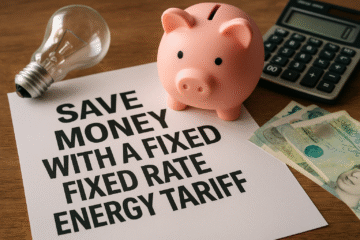Government energy schemes are initiatives put in place by the government to promote the use of renewable energy sources and reduce the reliance on fossil fuels. These schemes are designed to incentivise individuals, businesses, and communities to invest in renewable energy technologies such as solar panels, wind turbines, and biomass boilers. The ultimate goal of these schemes is to reduce carbon emissions, combat climate change, and create a more sustainable energy future.
In recent years, there has been a growing recognition of the importance of transitioning to renewable energy sources, and governments around the world have been implementing various schemes to support this transition. These schemes can take the form of financial incentives, grants, tax credits, and regulatory policies that make it easier and more affordable for individuals and businesses to invest in renewable energy. The success of these schemes is crucial in achieving global climate targets and creating a more sustainable future for generations to come.
The Role of Government in Promoting Renewable Energy
The role of government in promoting renewable energy is crucial in driving the transition towards a more sustainable energy future. Governments have the power to set ambitious targets for renewable energy adoption, implement policies and regulations that support the growth of the renewable energy sector, and provide financial incentives to encourage investment in renewable energy technologies.
One of the key ways in which governments promote renewable energy is through the implementation of feed-in tariffs, which guarantee a fixed payment for renewable energy generated by individuals or businesses. This provides a financial incentive for investment in renewable energy technologies and helps to make them more economically viable. Additionally, governments can also implement renewable energy targets and mandates, requiring a certain percentage of energy to come from renewable sources. This creates a market demand for renewable energy and drives investment in the sector.
Furthermore, governments can provide research and development funding for renewable energy technologies, as well as support for infrastructure development such as grid modernisation and energy storage. By taking these actions, governments can play a pivotal role in driving the transition towards a more sustainable and low-carbon energy future.
Impact of Government Energy Schemes on Renewable Energy Adoption
Government energy schemes have had a significant impact on the adoption of renewable energy technologies. By providing financial incentives and regulatory support, governments have been able to drive investment in renewable energy and accelerate its adoption. This has led to a rapid growth in the renewable energy sector, with solar, wind, and other renewable technologies becoming increasingly competitive with traditional fossil fuels.
In addition to driving investment, government energy schemes have also helped to create jobs and stimulate economic growth in the renewable energy sector. By providing financial incentives for investment in renewable energy technologies, governments have created a market demand for these technologies, leading to increased production and job creation. This has not only helped to reduce carbon emissions and combat climate change but has also provided economic benefits for communities and businesses.
Furthermore, government energy schemes have helped to diversify the energy mix, reducing reliance on fossil fuels and increasing energy security. By promoting the adoption of renewable energy technologies, governments have helped to create a more resilient and sustainable energy system that is less vulnerable to price fluctuations and supply disruptions. Overall, government energy schemes have had a positive impact on renewable energy adoption, driving investment, creating jobs, and reducing reliance on fossil fuels.
Challenges and Opportunities in Government Energy Schemes
While government energy schemes have been successful in driving investment in renewable energy, there are also challenges that need to be addressed. One of the main challenges is the need for long-term policy stability and certainty. In order to attract investment in renewable energy technologies, businesses and investors require confidence that government support will be sustained over the long term. Without this certainty, investment in renewable energy may be deterred, leading to a slowdown in the transition towards a more sustainable energy future.
Another challenge is the need for effective coordination between different levels of government and across different policy areas. In many cases, responsibility for energy policy is divided between national, regional, and local governments, as well as different government departments. This can lead to fragmented and inconsistent policies that hinder the growth of the renewable energy sector. Effective coordination and collaboration between different levels of government are essential to ensure that policies are aligned and supportive of renewable energy adoption.
Despite these challenges, there are also opportunities for government energy schemes to drive further growth in the renewable energy sector. One opportunity is the potential for innovation and technological advancement in renewable energy technologies. By providing research and development funding and supporting innovation in the sector, governments can help to drive down costs and improve the efficiency of renewable energy technologies, making them even more competitive with traditional fossil fuels.
Another opportunity is the potential for international collaboration on renewable energy initiatives. By working together with other countries, governments can share best practices, drive investment in renewable energy technologies, and create a global market for renewable energy. This can help to accelerate the transition towards a more sustainable energy future and create economic opportunities for businesses and communities around the world.
Case Studies of Successful Government Energy Schemes
There are numerous examples of successful government energy schemes that have driven investment in renewable energy and accelerated its adoption. One notable example is Germany's feed-in tariff scheme, which was introduced in 2000 and has been instrumental in driving investment in solar and wind power. The scheme guarantees a fixed payment for renewable energy generated by individuals or businesses, providing a financial incentive for investment in these technologies. As a result, Germany has become a global leader in renewable energy adoption, with solar and wind power accounting for a significant portion of its electricity generation.
Another example is the Renewable Heat Incentive (RHI) scheme in the United Kingdom, which provides financial incentives for the installation of renewable heat technologies such as biomass boilers and heat pumps. The scheme has helped to drive investment in renewable heat technologies and reduce reliance on fossil fuels for heating. It has also created economic opportunities for businesses in the renewable heat sector, stimulating job creation and economic growth.
In addition to these examples, there are many other successful government energy schemes around the world that have driven investment in renewable energy and accelerated its adoption. These case studies demonstrate the positive impact that government support can have on the growth of the renewable energy sector and provide valuable lessons for other countries looking to promote renewable energy adoption.
Future Outlook for Government Energy Schemes and Renewable Energy
Looking ahead, there is a strong outlook for government energy schemes to continue driving investment in renewable energy and accelerating its adoption. As the urgency of addressing climate change becomes increasingly apparent, there is growing momentum for governments around the world to take ambitious action to promote renewable energy. This is likely to lead to further expansion of government energy schemes and increased support for renewable energy technologies.
One key area of focus for future government energy schemes is likely to be on grid modernisation and energy storage. As the share of renewable energy in the electricity mix continues to grow, there will be an increasing need for modernised grids that can accommodate variable sources of power such as solar and wind. Additionally, there will be a growing need for energy storage technologies that can store excess renewable energy for use when demand is high. Government support for grid modernisation and energy storage will be crucial in enabling further growth of the renewable energy sector.
Another area of focus is likely to be on promoting innovation and technological advancement in renewable energy technologies. Governments are likely to continue providing research and development funding for renewable energy technologies, as well as supporting innovation in areas such as offshore wind, hydrogen production, and advanced solar technologies. This will help to drive down costs and improve the efficiency of renewable energy technologies, making them even more competitive with traditional fossil fuels.
Overall, the future outlook for government energy schemes and renewable energy is positive, with continued support likely to drive further growth in the sector. As governments around the world take ambitious action to combat climate change and promote sustainable development, there is likely to be increasing momentum for investment in renewable energy technologies.
The Importance of Government Support for Renewable Energy
In conclusion, government support is crucial in driving investment in renewable energy technologies and accelerating their adoption. Government energy schemes play a pivotal role in providing financial incentives, regulatory support, and policy certainty that are essential for creating a thriving market for renewable energy. These schemes have had a significant impact on reducing carbon emissions, creating jobs, stimulating economic growth, and diversifying the energy mix.
While there are challenges that need to be addressed, such as long-term policy stability and effective coordination between different levels of government, there are also opportunities for further growth in the sector. By promoting innovation, technological advancement, grid modernisation, and international collaboration on renewable energy initiatives, governments can continue to drive investment in renewable energy technologies.
As we look ahead to the future, it is clear that government support will be essential in enabling further growth of the renewable energy sector. With increasing momentum for ambitious action on climate change and sustainable development, there is likely to be continued expansion of government energy schemes and increased support for renewable energy technologies. This will be crucial in creating a more sustainable and low-carbon energy future for generations to come.





